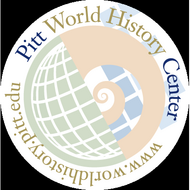
(View Complete Item Description)
In this introductory course, students will study history from a distance. It will cover tens of thousands of years of time and touch upon all the locations that humans have ever inhabited. The class will be about looking for patterns and comparisons rather than memorizing facts about names and places. By the end of the course, students should be able to identify and understand long-term and large-scale dynamics of complex change in the past. In particular, this course thinks about what happens when formerly disconnected peoples come into contact with one another. This is a class about connections (some violent and exploitative, others creative and productive), not about places in isolation. It explores the movements of people, goods, ideas, and non-human species—from microbes to mammoths—and the results of the encounters among them. This is also a course about the craft of history. In addition to learning about big structures of change in the human past, students will be practicing the skills and habits of the history major.
Material Type:
Syllabus
Author:
Alliance for Learning in World History




















